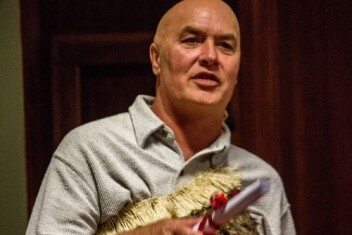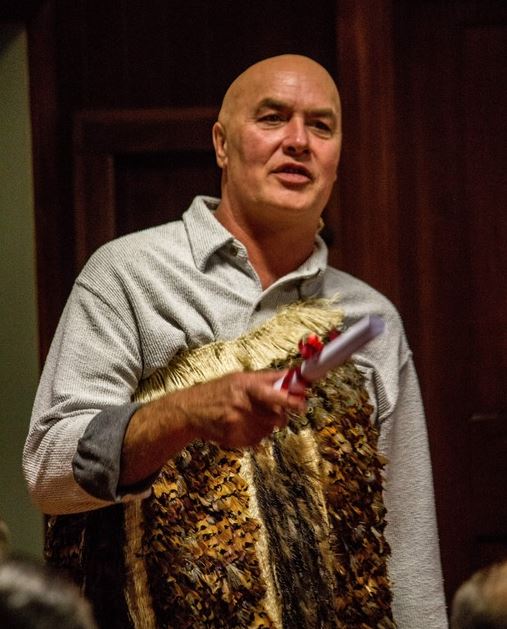Riki Park - Acupuncturist
Congratulations to Riki Park who recently graduated with his Bachelor of Heath Science in Acupuncture after 4 years of Tertiary study at the New Zealand School of Acupuncture and Traditional Chinese Medicine. Riki gives us an open account of his journey towards this great achievement.
What was your reason or what prompted you to follow the course of study you did?
"I had worked in forestry for numerous years and loved it. When we down-sized our workforce and I saw the pain and sadness caused to those that were let go, it left a bitter taste in my mouth, and I eventually left. I decided to work in Tasman and although the money was good, there was no life balance. I started becoming angry and grumpy, like many on the paper machines, and this was affecting my family. An opportunity came up to leave and I thought about what I really wanted to do in life. I looked around at our people and saw many health problems, people my age looking like kaumatua, many dying in their early sixties, there are chronic muscular issues, widespread obesity, respiratory problems and many others. They say that the smell of Tasman is the smell of money, but it has been slowly but surely killing our people since the 1950’s. That is when I decided to explore the fields of health. I looked at the fields of physiotherapy, osteopathy, chiropractic’s and acupuncture. I decided on acupuncture because of its holistic approach that is, looking at a person’s overall health and treating from that perspective. I read that in China blind people perform acupuncture and thought if a blind man can do acupuncture, surely, I can do it"
How did you find it?
"The study of acupuncture was hard but interesting. It has been used in China for over 2000 years and is one of the oldest forms of medicine in the world. Over 50% of the course was western medicine; anatomy, physiology, pathophysiology and pharmacology, which was gruelling but necessary as it allows you to be able to identify potentially serious problems that need referral and to understand diseases from a western perspective. The highlights of the course were treating patients at the school clinic, treating pregnant women at the Hutt hospital and treating women prisoners at the Arohata prison."
What are you doing now as a result of your study?
"I am currently practicing at a clinic in Wellington (1.5 days a week) and also setting up a practice in Titahi Bay, trying to build a client base. I am also providing a marae-based clinic at Tukorehe marae. My aim is to come home to treat but I am waiting for our potiki to complete his schooling, he is in year 12. The time in Wellington will allow me to further develop my skills prior to coming home."
Any words of wisdom or advice for others contemplating Tertiary study or a similar course of study?
"Find out what your passion in life is. Once you have found what you are passionate about, choosing the right course of study will be easier. The obstacles of the course will, although hard, be easier to overcome, due to the knowledge that at the end of your studies you will be doing something you love to do. When you are unsure, or stuck, ask for clarification, ask for help. Most people are willing to help. There are those amongst your iwi that have been in your position, or similar a position, and are willing to help. That’s what whanau are for, and social media means we’re only a click away.”
Is there anything anything else you would like say?
"E mihi kau ana ki oku Rangatira e noho na i runga i te poari o Tuwharetoa Settlement Trust mo a koutou tautoko me te koha aroha mo taku nei haerenga. Ki a koe hoki e te tuahine, e Elaine, mo to mahi. Mauri ora ki a koutou."


